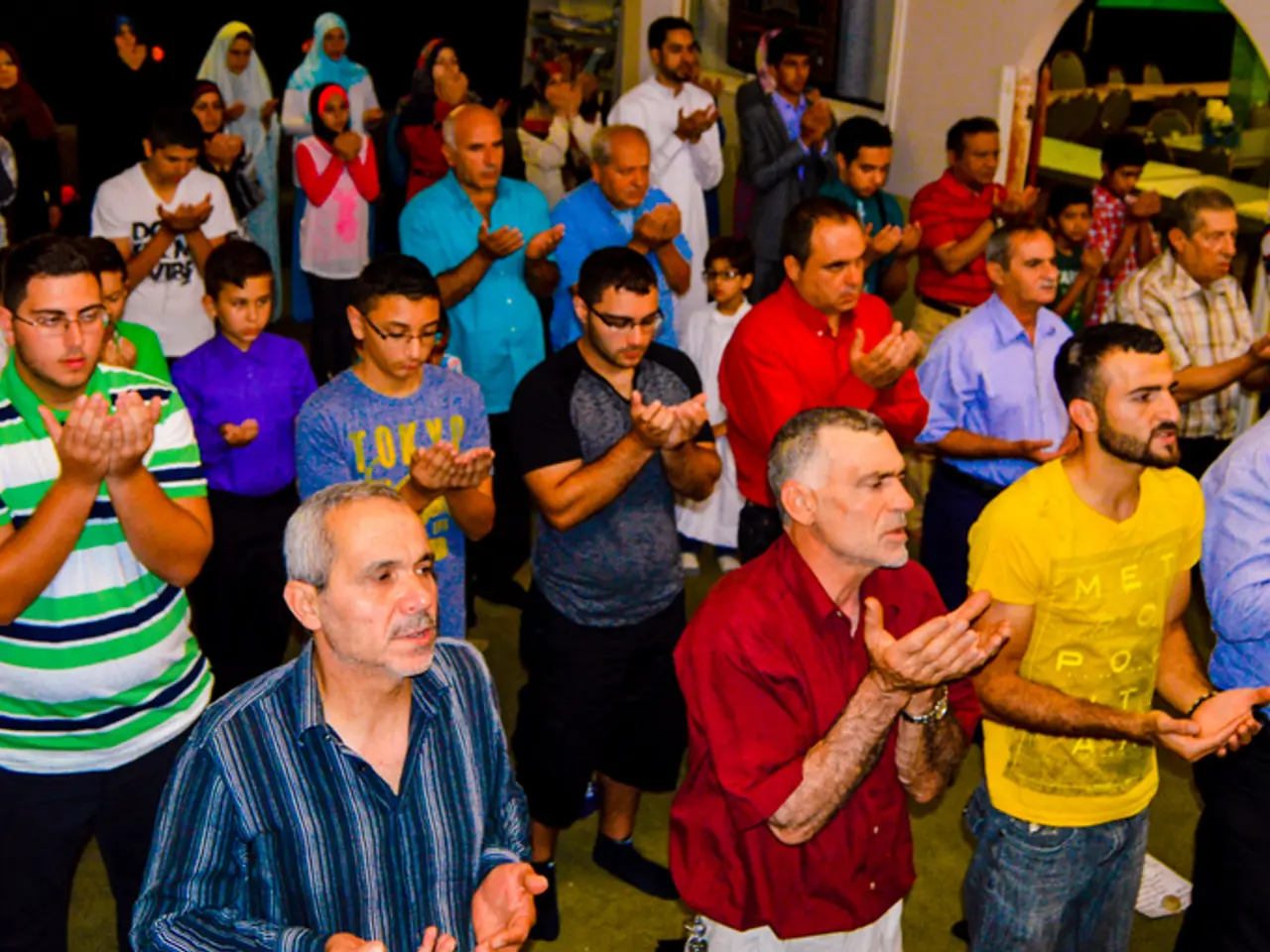Melody of Prayers and Calls to Faith in Erwadi Unleashed
Faith-Based Mental Healthcare Centers in Tamil Nadu: A Balance Between Tradition and Modernity
The state of Tamil Nadu, India, has a rich history of faith-based mental healthcare, intertwined with missionary healthcare institutions that provided broad medical and social services. These institutions, such as the Christian Medical College (CMC) in Vellore, have played a significant role in healthcare, including mental health care, by establishing hospitals, clinics, and offering compassionate care often in underserved rural areas [3].
However, a tragic turning point came in 2001 with the Erwadi fire incident, where 28 mentally ill patients died in a fire at a faith-based care facility. This tragedy exposed critical issues in the mental healthcare system, particularly in faith-based settings, prompting significant scrutiny and calls for reform [1].
Following the Erwadi tragedy, the M.S. Chellamuthu Trust and Research Foundation began collaborating with the dargah administrators and the local community to promote scientific and humane treatment and dismantle abusive systems. The government and civil society responses included legal actions, policy changes, and increased oversight intended to protect the rights and dignity of mentally ill persons [1].
Today, faith-based mental healthcare centers in Tamil Nadu operate under stringent regulations, with ongoing efforts to combine spiritual support with evidence-based mental healthcare while safeguarding patient rights.
One such example is the Baba Saeed Ibrahim Dargah in Erwadi, which has been serving as a sanctuary for people for over 800 years. The dargah is particularly known for offering help to those struggling with mental illness, emotional trauma, or spiritual affliction. Nearly 2,000 people visit the dargah every day, seeking solace through rituals and prayer [2].
In response to the Erwadi tragedy, the dargah now operates a 24/7 mental health clinic, a 50-bed hospital, and a Dawa-Dua clinic that provides medicines to patients like K. Ayub Khan, a native of Beemapalli near Thiruvananthapuram in Kerala, who visits the dargah in Erwadi to escape his depression and find solace [4].
Private asylums and religious healing homes in the area, exploiting the dargah's legacy, often operated without government oversight or medical personnel and chained patients as a common practice. State authorities intervened by banning chaining, regulating faith-based institutions, and introducing medical oversight [2].
The temple administration in Gunaseelam and the Puliyampatti church have also adopted reforms to combat obscurantism related to mental healthcare. These reforms include offering holy water to mentally challenged people and ensuring around-the-clock access to psychiatrists for treatment [4].
The National Mental Health Survey of 2015-16 reported that nearly 3,700 faith healers across the country received training in identifying mental health problems [6]. This training is part of ongoing efforts to integrate scientific psychiatric care with respectful cultural and spiritual support.
The evolution of faith-based mental healthcare in Tamil Nadu highlights the complex balance between cultural/religious caregiving traditions and modern mental health standards. The dargah today serves as a poignant reminder of this delicate balance, symbolizing a form of grassroots mental healthcare rooted in cultural beliefs [1][3][5].
References: 1. Erwadi Tragedy: The Evolution of Faith-Based Mental Healthcare in Tamil Nadu 2. Erwadi Dargah: A Sanctuary for the Mentally Ill 3. Missionary Hospitals in Tamil Nadu: A Historical Perspective 4. Justice G.M. Akbar Ali's Role in Transforming Tamil Nadu's Mental Healthcare System 5. Integrating Spiritual Care with Mental Health Support in Tamil Nadu 6. Training of Faith Healers in Identifying Mental Health Problems
- Despite historical controversies, many faith-based mental health centers in Tamil Nadu now prioritize a combination of science and spiritual care, as seen at the Baba Saeed Ibrahim Dargah, which operates a 24/7 mental health clinic alongside traditional rituals and prayer.
- In recent years, health-and-wellness approaches have been integrated into faith-based mental health care, such as the Dawa-Dua clinic at the Erwadi Dargah, which provides medicines to patients like K. Ayub Khan, who seek mental health support in a spiritual context.
- While faith-based mental healthcare in Tamil Nadu has evolved significantly, it remains crucial to ensure patient rights and evidence-based mental health care, lessons learned from the tragic Erwadi fire incident in 2001.




